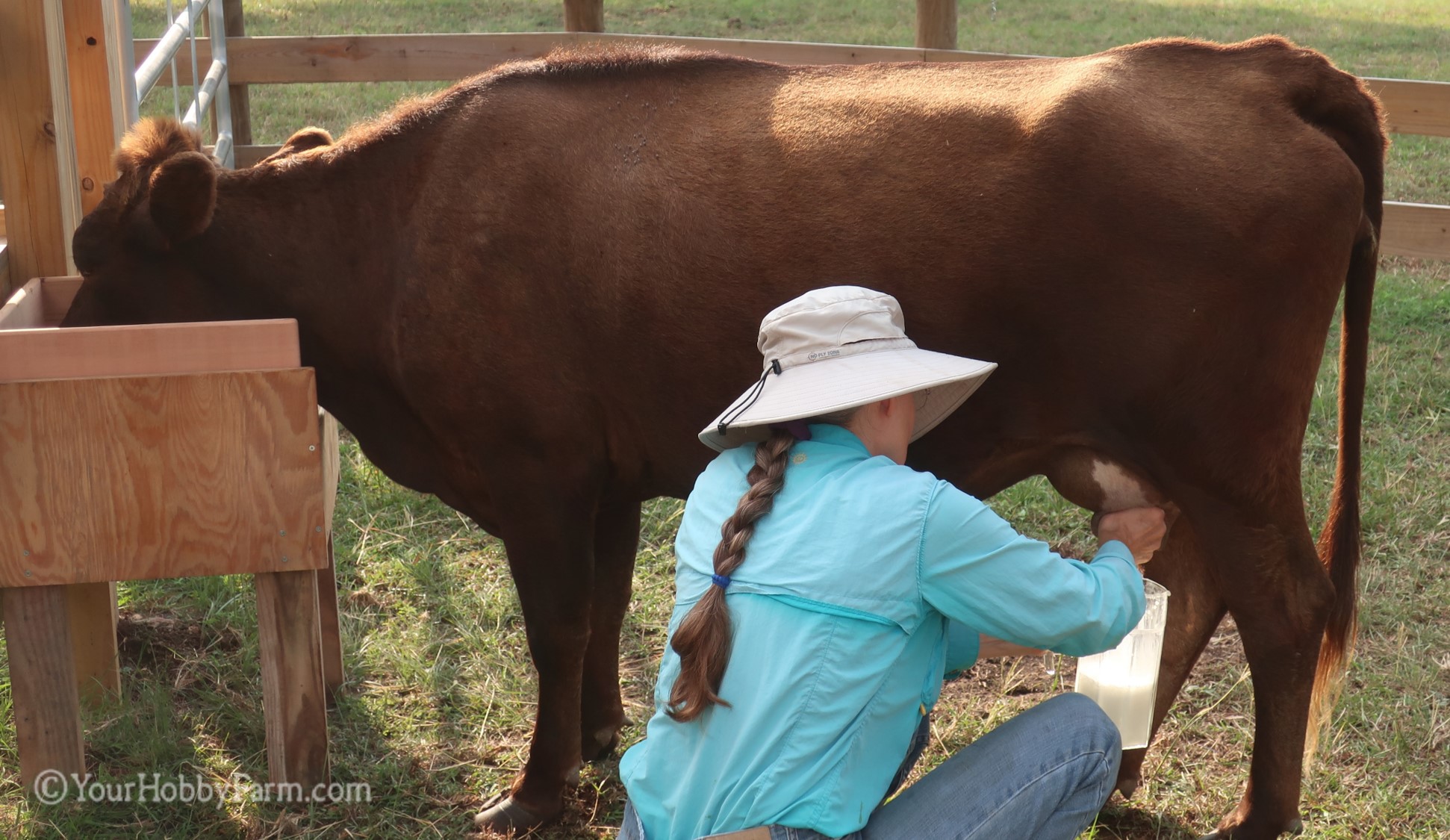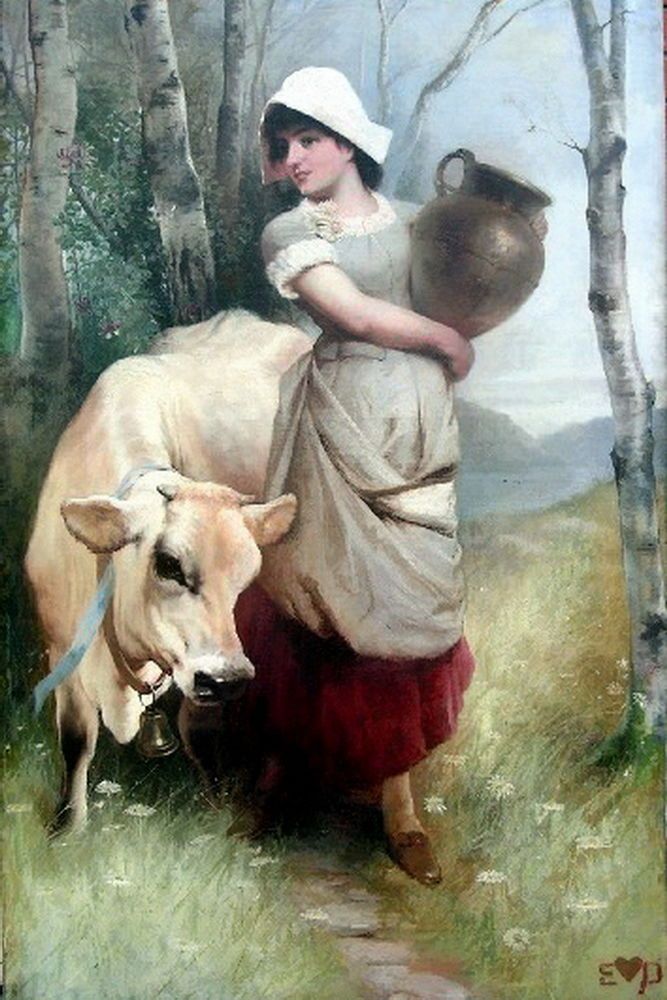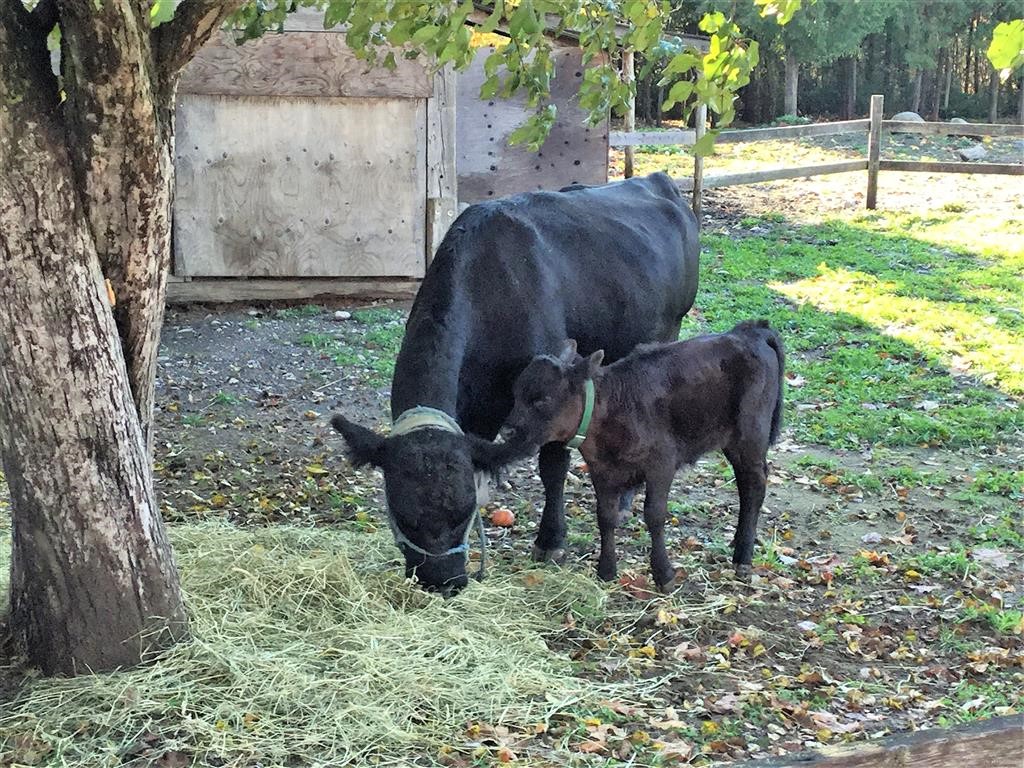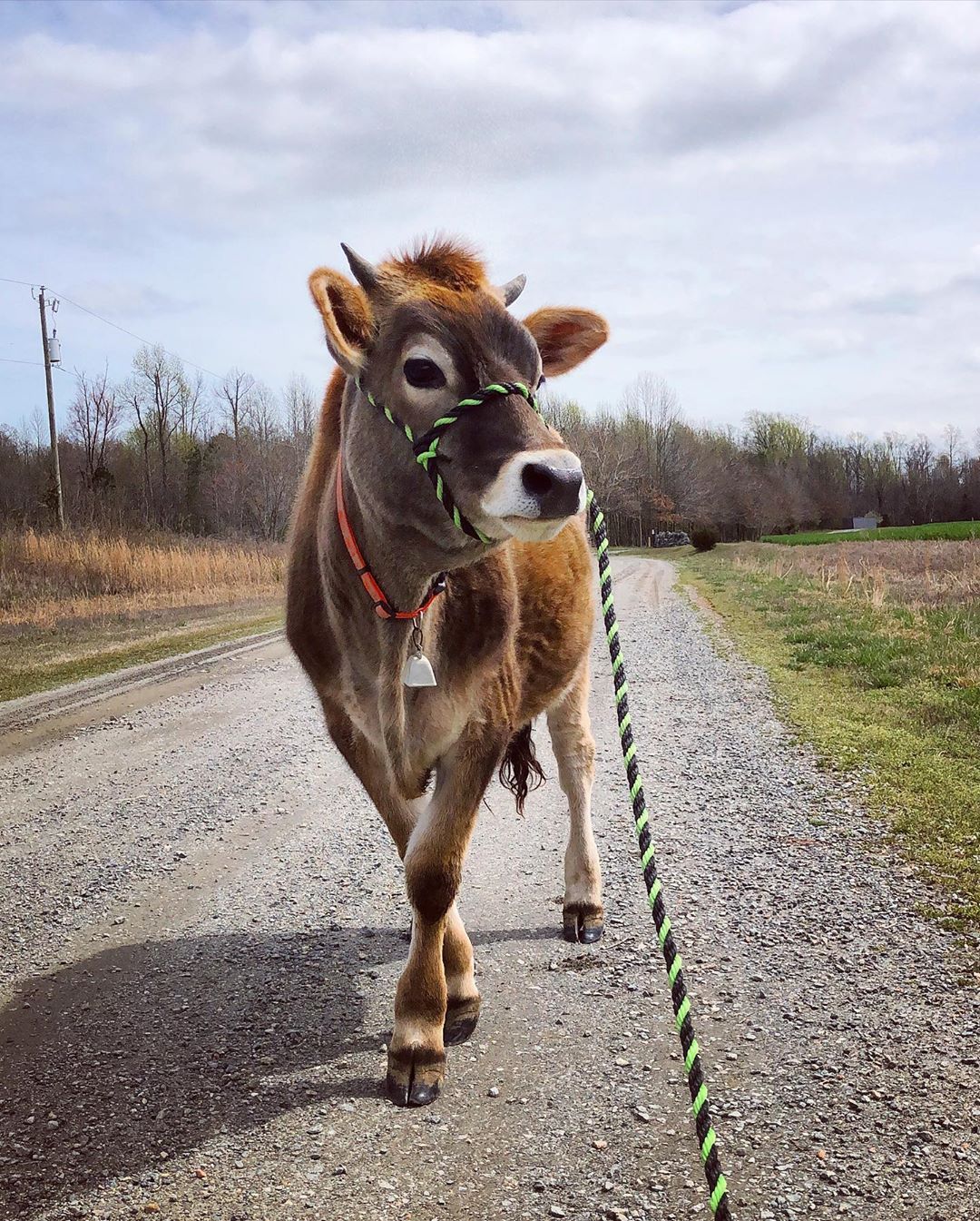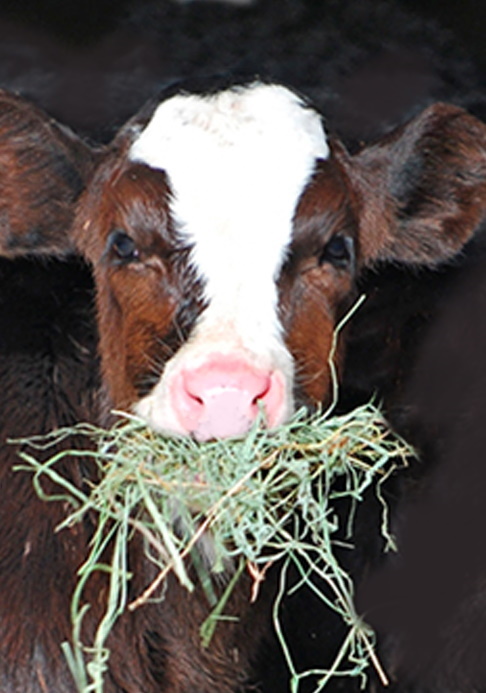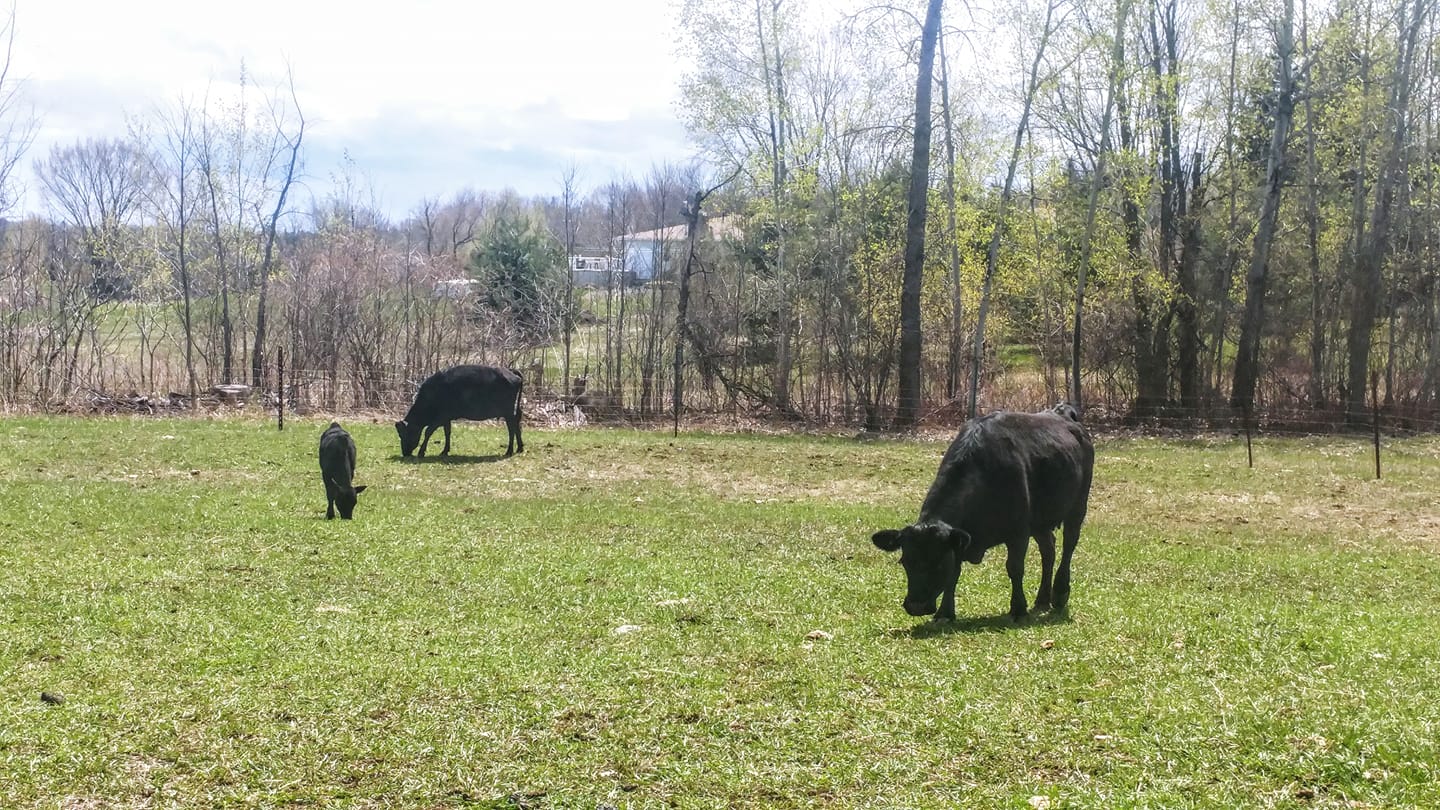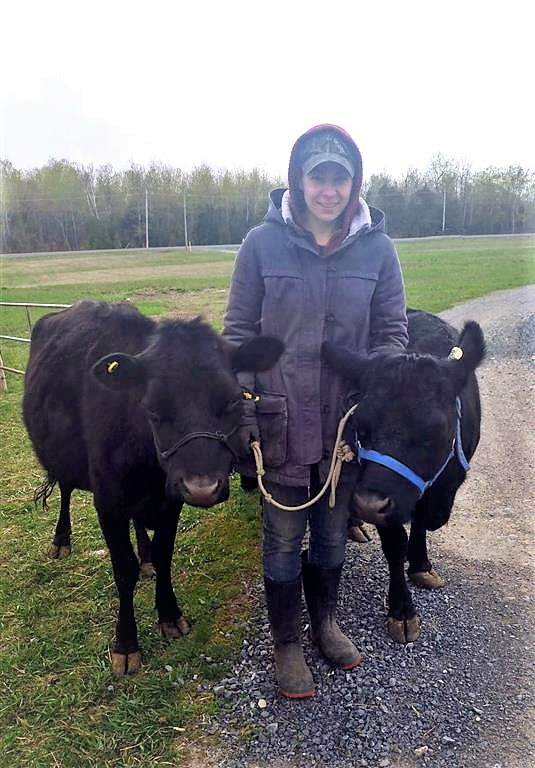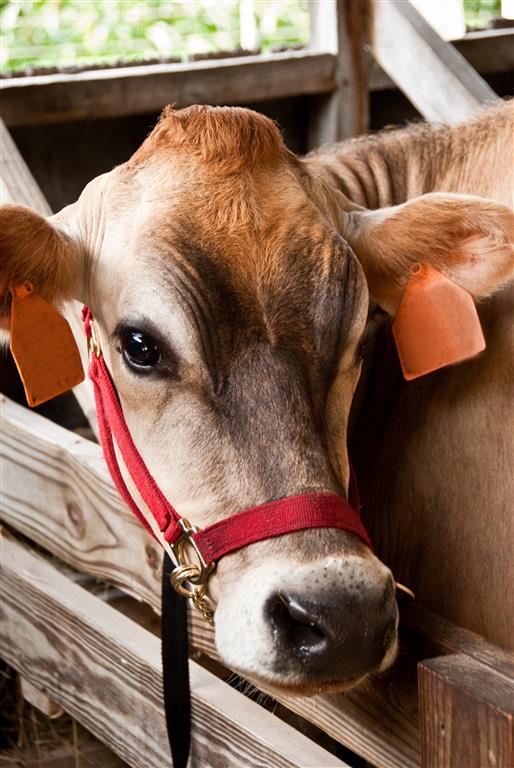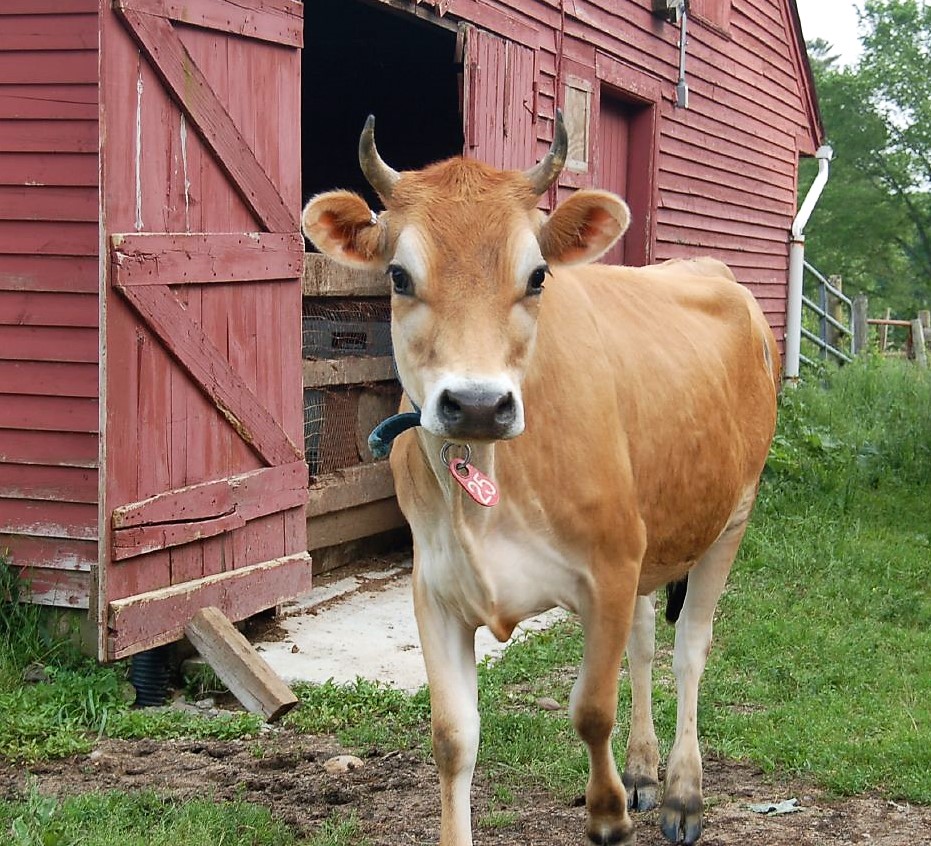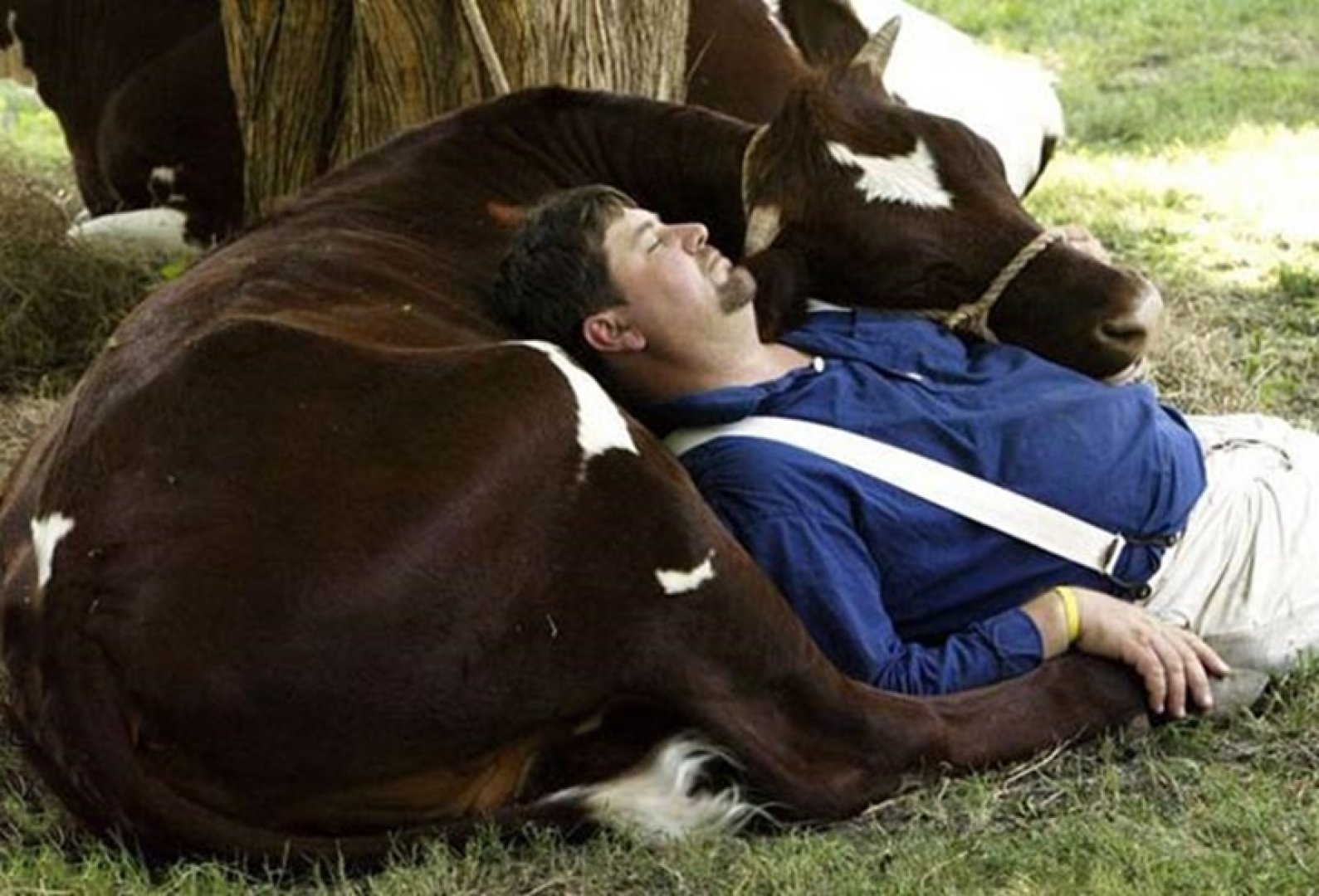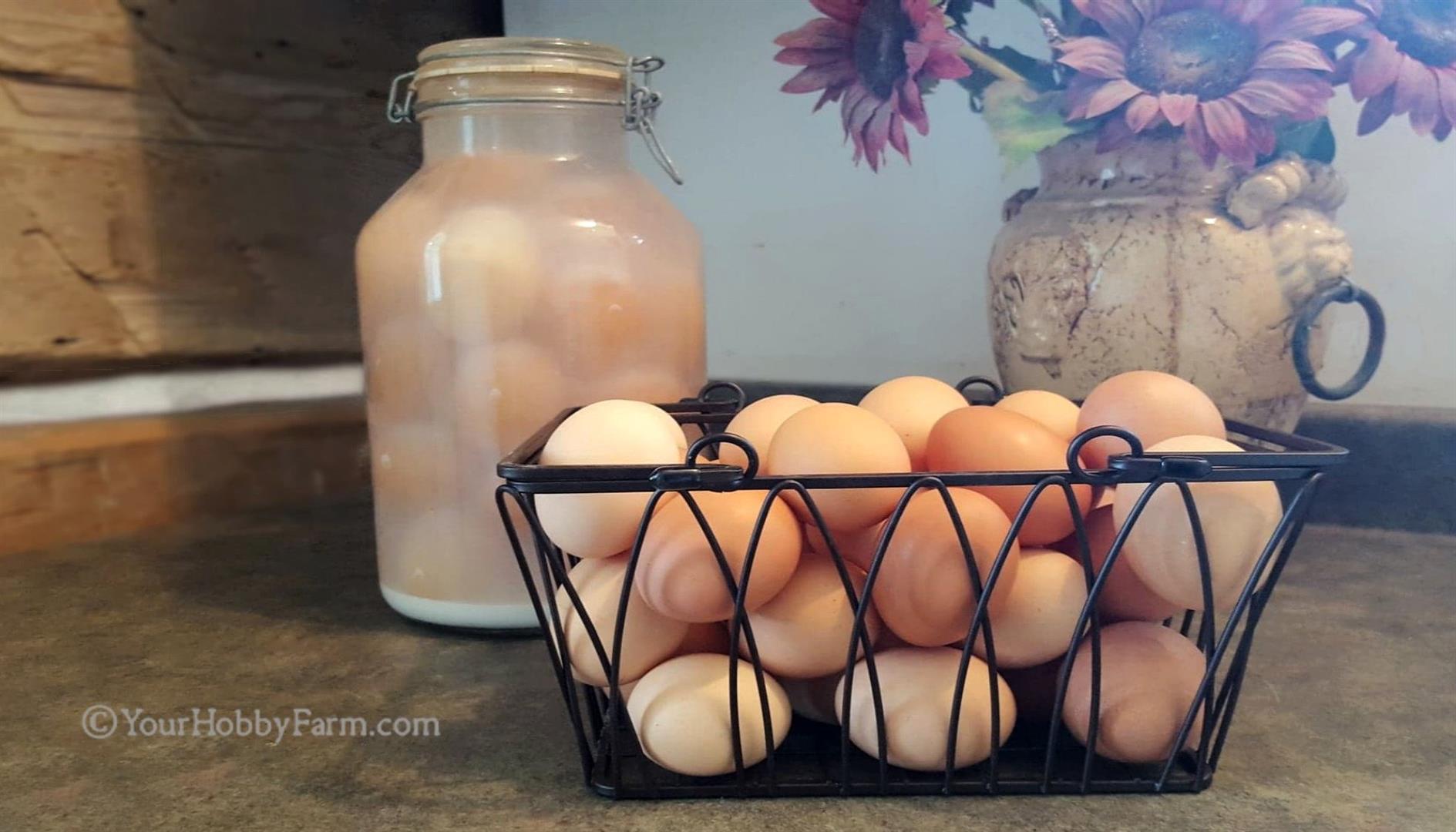The Farm Cow
Things to Consider When Contemplating a Family Milk Cow
The farm cow: She's been an iconic farm animal for centuries. A sweet, gentle family milk cow is one of the most satisfying, rewarding additions to the self-sustaining lifestyle. Perhaps you've given serious thought to adding a milk cow to your hobby farm or homestead. The benefits that she provides are many and varied, and perhaps it's time to fulfill this dream. If so, here are some things to consider.
You may already be dreaming of those big dark eyes and her gentle face. You can almost taste the fresh raw milk, and rich cream. You'd love to try making yogurt, farmers cheese, or homemade ice cream in your own hobby farm kitchen. All this made possible by your own sweet farm cow ...or two!
Learning from the Past Enhances Our Future
From generations past, a farm cow has been a significant part of country life. And some of us have been blessed to have experienced this lifestyle as children. But over the years, the migration of so many into urban life has eliminated the family farm cow from their lives.
However, the value of farm days and country ways has once again become apparent to and appreciated by many urban dwellers. People want to get back to hobby farming, homesteading, and more self-sufficient lifestyles.
Along with the many benefits and blessings of rural life, they know that a farm cow would help to support self-sufficiency. And, as is always good, they have a lot of great questions...
When you've not yet experienced something, it can be hard to know what questions to ask! That's what we'd like to help you with by introducing some questions...
Because each family and each hobby farm is unique, we cannot answer all of them for you, but by introducing a few facts as well as some questions for you to ask, we're hoping that it will enable you find some of those answers.
Important Questions to Ask Before Getting a Family Farm Cow
Here are some important things to consider when thinking about getting a family farm cow:
What would be the best breed of cow for your family?
Would your preferred breed of cattle that yields just milk, or both rich milk as well as fine beef, or would that matter?
Does the size of the cow make a difference to you? Would you feel at ease around a large cow or more comfortable handling a smaller or miniature cow? Would you be comfortable if she's horned, or would you rather that she's polled?
It would be good to find out what all you would need to feed a milk cow. Would you have access to a feed mill or co-op to provide for her what she would need nutritionally?
Do you have a barn or sufficient shelter and well-fenced pasture for her? And what about any specific equipment for your cow that you might need?
What kind of time investment would be required? Would the time needed to milk her, care for her, and clean up after her fit into your daily schedule?
Would you want a trained, experienced milk cow? One that halter leads well? It would be very important to know if she has been milked before. If so, was it by hand or by a milking machine? Or would you need to train her, and if that is the case, would you have the expertise to do that?
How much would you expect to pay for the cow and should you budget for her continual upkeep? What would be the expenditures compared to the benefits of having your own farm cow?
And very importantly, what about her temperament? It would be very beneficial to find out ahead of time if she's easily spooked, offish by nature, or stubborn, having a mind of her own. Or would she be friendly, docile, trainable, like a pet?
We're hoping you'll consider these important questions and perhaps you'll find some helpful answers as you continue to read...
What Would be the Best Breed for Your Family Farm Cow?
Having considered the needs of your family and what you're specifically looking for in a family farm cow, you'll need to decide on the breed that would fit your needs and preferences best. While there are many great breeds to choose from, there are two breeds that have risen to the top of the list as hobby farm and homestead favorites: Dexters and Jerseys.
Dexters are considered miniature cattle, being about one-third the size of a Holstein cow, for a comparison. They are an Irish heritage breed that has been somewhat rare and are recently becoming more popular. Dexters have three coat colors - black, red, and dun (brown) with no white marking except for some very minor white markings on the belly/udder area.
Dexters are usually considered a dual-purpose breed, known for their rich milk, high in butterfat, and excellent beef. But they are listed as a triple-purpose breed as well, since they are also used as oxen. They small, gentle, and easier to handle. They typically have a friendly temperament and are smart, quick learners, making them easier to train. Their many uses, along with their small size, make them ideal milk cows as well as beef producers for homesteaders and hobby farmers.
Two breeds that we've had some experience with are Jerseys and Irish Dexters. These breeds are growing in popularity of late. Here at our hobby farm, we now have a purebred Dexter, Ebony, and a Dexter-Jersey cross, Willow.
Jerseys are a lovely breed, well-known for being calm, gentle, curious cows, with sweet faces and gentle eyes. They are smaller framed, generally weighing a little under 1000 pounds fully grown. Their brown coats range in color from light tan to dark chocolate brown, both solid and broken colors. They typically have larger utters, producing a good amount of cream in their milk. Jerseys adapt well to various climates and environments.
Jerseys are now bred in miniature size as well. Many smaller farms choose Jerseys for their milk cows.
Another question to ask when choosing your farm cow is this: Would be you be comfortable if she's horned, or would you rather that she's polled (either unhorned or dehorned)?
It's important to take the time to research which of the many great breeds would be best for your situation and needs.
What Would You Need to Feed Your Cow?
Cows can eat a lot. What will you feed the cow? Will you be able to provide proper nourishment for her?
A good family farm cow is usually a fairly easy keeper. Basically, she'll need a grassy pasture, large enough for proper grazing with ample grass. She'll also need plenty of good quality hay, a dairy ration grain mix (we use a mix of corn, oats, and barley, all rolled with some dry molasses), and perhaps some supplemental pellets. A salt and mineral block or loose minerals which include copper and selenium will be important, and plenty of good, fresh water is vital.
It great to remember, when buying a cow, to ask the previous owners what diet and feed she's use to. Cows don’t need a lot of variety in their diet, and they do well on consistency. As long as their nutritional needs are met, it's best for them to stay on the same diet without any major changes.
If you're seriously considering a family farm cow, it would be important to talk with other farmers in your area to estimate what it would cost for her hay, feed, and other nutritional needs since these can be different depending on the area.
Do You Have Adequate Pasture Space for a Cow?
The amount of pasture that you'd need per cow depends on several things. Among the things that you'll need to consider would be the climate of the area in which you're located. It your weather dryer or rainy? What's the quality of your pasture and what kind of grasses and other vegetation does it produce? Will you be able to work on improving and maintaining a good quality pasture?
Little Dexters are known as 'half acre cows'. You'll probably need between half an acre, supplementing with hay, to three acres per cow for grazing. For a Jersey cow which is larger than a Dexter, it's generally recommended you have two to five acres per cow. So, as you can see, the size of your cow and the number of cows that you're planning on having will need to be considered when calculating adequate space for grazing.
Also, a farm cow's intake depends on its age, the quality of its feed, and whether it's lactating or not. Some say that a lactating cow will eat forty to sixty percent more than a dry cow.
To be on the safe side, it's always best to have more than ample pasture space with enough room for your cow or cows to peacefully graze and be nutritionally satisfied.
What Daily Time Investments Would a Cow Require?
One important question to ask yourself when thinking of getting a milk cow is this: Am I able and willing to make the time commitment required for keeping a family farm cow? As Joann S. Grohman, author of Keeping a Family Cow, said, “The dairy cow doesn’t ask for much, but she asks every day.”
Many people looking to get their first farm cow may have concerns about the time requirements that will accompany her. Prospective cow keepers may have second thoughts, envisioning themselves continually enslaved to the cow, up before sunrise, never being able to take a vacation, wondering if they'll have a life outside of the farm routine... But rest assured, it doesn't have to be that way.
Cows love routine and with consistency, they'll catch on. Having a schedule and sticking to it is important to them and they thrive best when their lives are orderly. So, whether you choose to milk her at the crack of dawn or wait to after you've woken up and had your coffee, she'll learn when she can expect to see you for food and milking.
You'll need to have enough time for feeding, making sure she has plenty of good hay and fresh water. Give yourself time for milking calmly and with a relaxed mind. And milking a well behaved cow is rather relaxing! Then give her bit of grooming accompanied by expressions of loving appreciations. Grooming her shouldn't be skipped as it has considerable biological importance to cows. And since it is a social activity for cows, it's important that we take some time for this as well. As you're grooming you can also observe her general health and check for injuries or other issues.
And don't forget that you'll need to be careful to clean up her stable and paddock areas, etc... And you'll also need to process the milk when you bring it into the house. It all takes time to do a job well done, but it certainly doesn't take hours out of your day, and it's definitely worth it!
As you can see, having a family farm cow does require a daily time commitment, but there are ways to accomplish these responsibilities and enjoy the great benefits!
What Equipment Would I Need If I Had a Cow?
What equipment will you need to have for a family cow? For starters, you'll need a cow halter and a good lead rope. Important items include a water trough that holds twenty to thirty gallons of water at least, a lidded storage barrel or other container for grain, a good feed scoop, and a heavy duty feeding pan for her grain. You may also want a teat dipper for cleaning her utter before milking, and some microfiber cleaning clothes for cleaning and drying her off. These are the kind we use and they work great! And don't forget a large, clean, stainless steel, lidded container to milk into.
After you're finished milking and have brought the milk into the house, you'll need a couple of good milk strainers (these work perfect for us!), large glass jars to refrigerate the milk in. We love this type of jars with attached clamping, airtight lids!
Grooming your cow helps a lot with bonding with her so some good grooming brushes would be important.
Since cows can kick really hard, some folks recommend getting an anti-kicking device, or you can use a rope hobble on their back legs. And while these do keep you from getting hurt, we prefer to take the time to cultivate a strong trust relationship with each our cows which eliminates the need for using these devices.
When you're both comfortable with one another you'll probably not experience any kicking! A stanchion or milking station will probably be a necessity as well, depending on your cow. We'll say more about this on our milking page.
What Kind of Expenses Might a Cow Require?
There is definitely expenses involved with having a farm cow, but she can be financially beneficial as well. First of all, there's the initial cost of the cow. It's difficult to pin down an amount of what you can expect to pay for a cow because there are so many variables such as breed, age, training, the area in which you're located, etc. But a very rough estimate could be from around $800 for a heifer1 to over $5,000 for a trained milk cow.
If you don't have a barn, you'll need to build a good shelter and she'll need a good fenced in pasture as well. Throughout the year, you'll need to provide plenty of good quality hay for her and the other nutritional requirements and equipment that we've mentioned above. These expenses also vary a lot from location to location and from year to year due to weather, etc. so they're difficult to estimate.
You'll might also need to have her hooves trimmed now and then. Occasionally, there might be a vet bill, fees for breeding or AI, as well as other expenses that may arise.
But you will see the dairy part of your grocery bill reduced a lot! Beyond what the family drinks or eats as milk products, there are also other uses for the milk that will save on expenses. And there are other blessings as well that come with having a sweet cow!
Be aware ahead of time that in many places you will not be legally able to sell your wonderfully, healthful fresh raw milk. It's important for you to know what your province or state laws and restrictions are regarding this. But in some places, farmers are allowed to sell extra milk, butter, cheese, soap, and other products from fresh milk.
Then how can the extra milk be financially beneficial? In some areas it can be sold for animal consumption. And even if you can't use it to create an income, this raw milk is a rich food that will benefit other animals on the farm. Calves, pigs, dogs and even sometimes chickens can thrive on the fresh milk. Using it for their food reduces costs on the farm.
Enjoy Your Cow!
The blessings of having a family farm cow can go far beyond the milk they give to us. Cows can be loving, intelligent, curious, gentle pets as well. At the end of a tiring work day, a well-deserved rest with your cow can be mutually relaxing.
William Corbett, 19th century essayist, once said, “When you have a cow, you have it all.” And two milk cows can double the benefits and joys!
We very much enjoy the two cows here on our hobby farm! And while we certainly don't profess to be experts on farm cows, we'd like to offer encouragement as well as some things we've learned along the way. And we're hoping that these will help you in finding the right milk cow.
We'd Love to Hear Your Cow-Related
Stories and Experiences!
And Please Share Your Photos As Well!
YourHobbyFarm.com is a community where we can share and learn from each other! Things you've learned along the way can be helpful to others as well! If you have experience with cows, or dreams of getting one, please share! If you are an established homesteader or hobby farmer, which breed to you have? We'd love to know which is your favorite and why? We'd love to see photos of your cows as well!
Just click into the title box below and go from there. Be as wordy and descriptive as you want! Don't be shy, there's plenty of room for your story on our website. Then when published, you can share your story and pictures with your friends through 'your page' here on YourHobbyFarm.com!
If you allow us to use any of your photos on our webpages, we're happy to ensure professional or amateur photographers get credit for their work. Leave us your name in the form below, and means of contact, website, or FB page info if you want, so we can link back to you.
Footnotes:
Heifer
1 Heifer: "A very young female is first a heifer calf. She grows into a heifer and becomes a cow. A heifer is a female that has not had any offspring. The term usually refers to immature females; after giving birth to her first calf, however, a heifer becomes a cow."
Translate This Page!
Traduire Cette Page!
¡Traduzca Esta Pagina!



Piping Rock©
Bringing you the highest quality In hundreds of health care and life-enhancing natural products at the
lowest cost to you!
high reviews, crazy deals,
happy, healthy customers!
Click here and save today!
Business Appreciation
* This website is not affiliated with
Piping Rock

Supporting our local feed mills
Meunerie Alexandria Milling
613-525-1973
Great Products • Great Prices
Great Service
Click the pic for their
facebook page!
Meunerie Alexandria Milling
Established in 1962 by The Massie Family
Email: Alexandriamilling@hotmail.Ca
475 Massie Crescent
Alexandria, Ontario, Canada
~~~
Small Business Appreciation
* This website is not affiliated with
Meunerie Alexandria Milling

